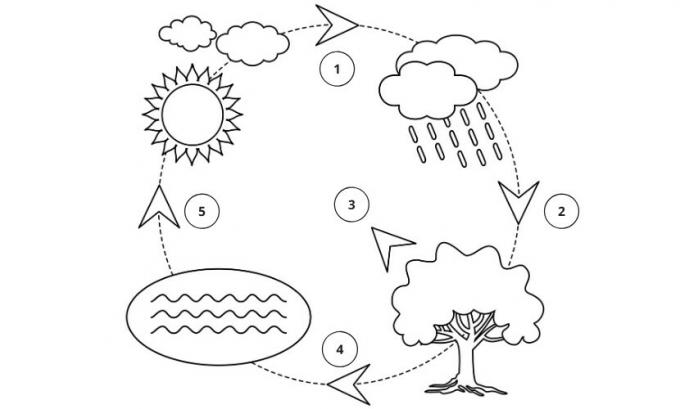THE renal insufficiency is a disease characterized by loss of kidney function. It is a systemic disease, being the final pathway of many diseases of urinary system. You kidneys they are responsible, among their various functions, for removing metabolic waste from the body, regulating blood pressure, among others. Kidney failure can cause several damages not only to this organ, but to the entire body.
readalso:formation of urine
→ Causes and risk factors of kidney failure

Kidney failure can be caused by a number of factors. As stated earlier, it is the final road of many urinary system diseases. Anomalies and obstructions in this system, such as those caused by the presence of kidney stones, can also trigger the disease.
Also, many other diseases, if not treated and controlled, they are risk factors for the development of renal failure, such as arterial hypertension, diabetesmellitus and polycystic kidney syndrome. There are also risk factors for the development of renal failure a
ageadvanced it's the abuseintoxic substances, like drugs and some medications like anti-inflammatory and pain relievers.It is always important to emphasize that you should never self-medicate! Only use medication prescribed by a doctor and following the prescribed treatment time.
readalso:Urinary infection

→ Symptoms of kidney failure
In some cases, such as chronic renal failure, especially in its early stages, the disease may present asymptomatic or, even, it may have its symptoms masked by the causing disease.
Below, some symptoms of kidney failure:
Little urine production;
Lots of urine production;
Willingness to urinate at night;
Arterial hypertension;
Anemia;
Accumulation of fluids, especially in the legs;
Itches;
Weakness;
Loss of appetite;
Nausea and vomiting;
Cramps;
Alteration of consciousness, among others.
readalso:Why is the pee color yellow?
→ Diagnosis and treatment of kidney failure
The diagnosis of renal failure is made from examclinical, exams laboratory, like blood and urine tests, and Image, such as ultrasounds. The treatment of renal failure is carried out taking into account the cause of the renal failure, which must be treated and controlled. It is also observed for the treatment, whether the renal failure is acute or chronic (the differences between the two types will be presented in the next topic).
O treatment it can be performed in different ways, taking into account the specificities of the cases. One diet may be recommended, as the kidneys will not be eliminating many substances from the body, in addition to helping to regulate blood pressure. The use of medicines it is also part of the treatment, helping to regulate pressure, for example, among other functions.
O dialysis treatment, such as hemodialysis, may be recommended, however, this type of treatment is generally recommended if the patient is at risk of death. As a last resort, the kidney transplant, indicated in the more advanced stages of the disease.
Kidney transplantation has been an excellent alternative for patients with irreversible kidney failure, as it increases the patient's quality of life. Brazil is among the countries with the highest number of kidney transplants.

→ Acute kidney failure vs. chronic kidney failure
Renal failure can occur in two ways, acute and chronic:
Acute kidney failure
Acute renal failure is characterized by a rapid decrease in kidney function, which can occur in days or in just somehours. The symptoms of acute kidney failure are: low back pain, fever, difficulty in urinating, blood in the urine, anemia, immunodepression, high blood pressure, loss of appetite, nausea and vomiting, accumulation of fluids, for example, in the legs and hands, among others.
Acute kidney failure is one of the main complications in patients admitted to Intensive Care Units (ICU), with a high mortality rate, which can reach 70%. Acute kidney failure is a pathologyreversible, however, if not treated properly, it can evolve and lead to death.
Chronic kidney failure
It is characterized by the progressive loss of kidney function. Chronic kidney failure, in its initial phase, is asymptomatic. However, in the more advanced stage, because of the accumulation of toxins in the body, the whole body can be affected, and they are observed bone, neurological and cardiac changes, for example. Chronic kidney failure, unlike acute kidney failure, is usually irreversible.



